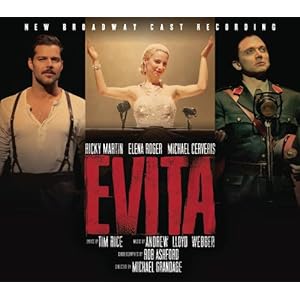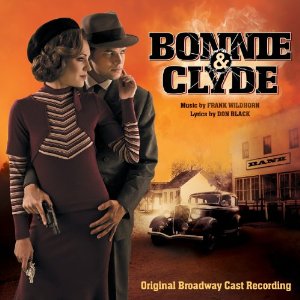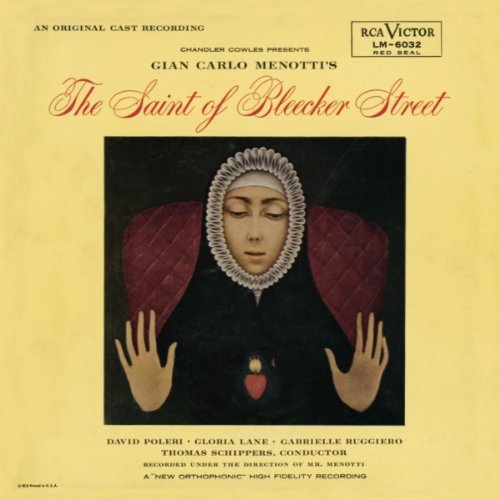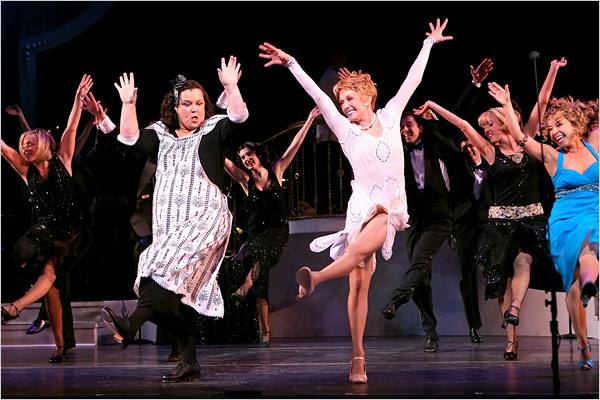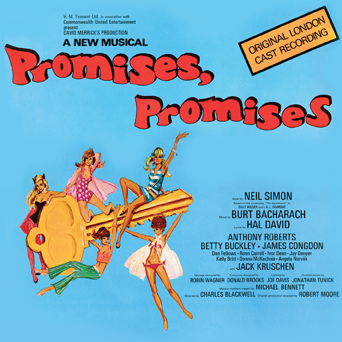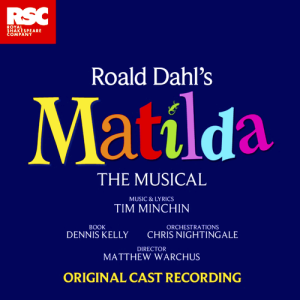
Every so often, I encounter a new score that captures my ear and imagination, and I find I myself listening to it ad infinitum. There’s something about the way the words and music hit me that I find that I compulsively want to hear the new work again and again. The last time this happened was six years ago on the release of The Light in the Piazza. There have been other scores in the years since that I have greatly admired, but none has bowled me over quite like the original cast album of Matilda. I’ve had this original cast recording for a month now, featuring the show’s original Stratford players, and have been listening to it so often that all of its 17 tracks have entered my top 25 playlist on iTunes. To be frank, I haven’t been this excited/thrilled/over-the-moon about a new musical in years, and if my ear is any indicator, Matilda is going to have a long and healthy life on stage.
Matilda had its world premiere at the Royal Shakespeare Company last December, directed by Matthew Warchus, (the man responsible for the smashing revival of The Norman Conquests). Dennis Kelly has written the book with Australian comedian, singer, songwriter Tim Minchin providing both music and lyrics. The choreography is by Peter Darling. The new musical opened to rave reviews at the Courtyard Theatre, where it played a sold out limited engagement, with the Daily Telegraph declaring it the best musical since Billy Elliot. I’ll take it a step further: Matilda contains the best original British score I’ve heard in ages. Now Matilda is poised to take the West End by storm, with performances starting at the Cambridge Theatre on October 25.
The focus here is on Minchin’s music and lyrics, but I must make mention that Kelly has written a superb libretto from Roald Dahl’s classic children’s novel. Minchin is new to writing musicals, though he has a background in theatre, but he makes an auspicious debut with his first full musical score. What’s so wondrous about this adaptation is that Mr. Minchin not only serves the book, but captures Dahl’s tone, with its mix of dark humor and understated emotion. Unlike most shows with child protagonists (most of which admittedly tend to send me straight for the insulin), Matilda never becomes cloying or irritating.
Matilda Wormwood is extraordinary, though she doesn’t realize it. She’s 5 going on 50 and in that old soul you find a young girl with more brains, compassion and maturity than most of the adults around her. Her parents (hilariously sung by Paul Kaye and Josie Walker) are self-centered pigs who find her affinity for reading repulsive. She meets a kindred spirit, the lovely Miss Honey – the only adult to recognize Matilda’s prodigious aptitude. However, at the same time Matilda encounters her arch nemesis, the evil headmistress Miss Trunchbull, a formidable bully who terrorizes everyone in her path.
The score is tuneful and memorable with inspired lyrics: character-based, witty and often quite clever. The opening number, “Miracle,” perfectly establishes the tone and adds the brilliant touch of Mrs. Wormwood learning of her pregnancy in the ninth month. “The School Song” is ingeniously structured around the 26 letters of the alphabet. “Bruce” is a rally song for the students as the Trunchbull punishes the portly Bruce Bogtrotter by forcing him to eat an entire chocolate cake. (One of my favorite rhymes: “Bruce/You’ll never again be subject to abuse/for your immense caboose/She’ll call a truce, Bruce/With every swallow you are tightening the noose”).
The Stratford cast utilized three actresses as Matilda: Adrianna Bertola, Josie Griffiths, and Kerry Ingram, all superb. All three are present on the cast album (though if I hadn’t known, I would never have realized it). “Naughty” shows us that Matilda is not going to go down without a fight, brilliantly using literary allusions to make her point. Throughout the musical, Matilda visits with the librarian (Melanie La Barrie) and is able to improvise stories off the top of her head. Each story is a chapter in Miss Honey’s life, though she doesn’t realize it toward the end. Musically, it climaxes with the haunting “I’m Here”. Toward the end of the second act, Matilda sings the touching “Quiet,” a soliloquy cued by a harsh diatribe from Trunchbull, in which she describes her mental escape from the unpleasantness around her.
Matilda’s mother is now obsessed with dance competitions instead of bingo, performing “Loud,” an over the top samba in which Mrs. Wormwood instructs Miss Honey on why it’s better to choose looks over books. During the interval, Mr. Wormwood makes an appearance to apologize for Matilda’s promotion of literacy before launching into the delightful “(All I Know I Learned from) Telly,” with a hilarious diatribe against famed British authors. (“Ian McEwan? Ah, I feel like spewin'”). The antidote to the hilariously appalling parents is Miss Honey, who gets the score’s more plaintive ballads, warmly sung by Lauren Ward. Michael Rouse has double duty as the kind obstetrician in the opening number “Miracle,” and as Mrs. Wormwood’s dance coach/partner Rudolpho.
One of Matilda‘s greatest treasures is British actor Bertie Carvel (Leo Frank in the London Parade) as Agatha Trunchbull, an inspired performance combining pure evil with searing wit. Miss Trunchbull gets two major numbers: “The Hammer” and the stunning “The Smell of Rebellion” in the second act, with a raucous fantasia where she imagines a world without children. In a brilliant stroke, Trunchbull is not only the headmistress, but also the Phys Ed teacher. Though she has the two solos, her presence is felt throughout much of the album. Carvel’s creation is quite possibly the greatest thing to happen to musical theatre villains since Dorothy Loudon played Miss Hannigan in the original Annie. I only hope that when the show makes its inevitable trip to Broadway, he comes with it.
The original cast album is available for digital download on iTunes or as a hard copy from the RSC website. The album contains a 28 page booklet including the lyrics. Also, when you hear the album, don’t stop listening after the finale is finished. There’s a special surprise that must be heard to be believed as it one of the most hilarious things I have ever heard on a cast album.

